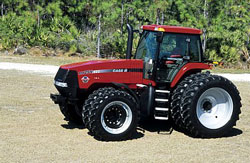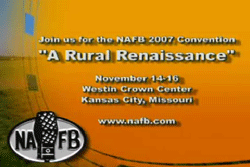I blogged about food fighting cancer. Now, I’ve found out about one plant that’s using food to create more food. The Fairview Swiss Cheese Plant in Mercer County, Pennsylvania is using biogas from food waste to produce steam that will help process milk into cheese.
The Fairview Swiss Cheese Plant soon will be partially powered with biogas made from its own waste products.
The plant, owned by John Koller & Son Inc. in Mercer County, broke ground Thursday on the renewable energy project, which converts food waste into gas, said Agriculture Secretary Dennis Wolff.
The $2.2 million project involves constructing an anaerobic digester that will use cheese whey from the plant and cone batter waste from the Joy Cone Co. to make 40 million cubic feet of biogas annually — the equivalent of 28 million cubic feet of natural gas.
The biogas will be used in a boiler to produce steam and electricity for processing milk into cheese that in turn will offset the purchase of fuel oil and electricity produced from fossil fuels. The wastewater from the digester will flow to a treatment facility where the solids will be removed and clean water discharged.
The project is a collaborative effort between the local county government, Fairview Swiss Cheese Plant, Joy Cone Co., and Penn State Cooperative Extension of Mercer County.


 Members of the Missouri Farm Bureau like to say “If you eat, you’re involved in agriculture.” With that in mind, it seems the latest campaign to fight breast cancer is very much involved in agriculture.
Members of the Missouri Farm Bureau like to say “If you eat, you’re involved in agriculture.” With that in mind, it seems the latest campaign to fight breast cancer is very much involved in agriculture. Why is it that Christmas hype always seems to come before Halloween hype? Well, I’m jumping on the bandwagon with this post about
Why is it that Christmas hype always seems to come before Halloween hype? Well, I’m jumping on the bandwagon with this post about  Next week I’ll be in Washington, DC for the Cellulosic Ethanol Summit. Thanks to the
Next week I’ll be in Washington, DC for the Cellulosic Ethanol Summit. Thanks to the  Speaking of food vs. fuel, the South Dakota Corn Utilization Council has started a program called
Speaking of food vs. fuel, the South Dakota Corn Utilization Council has started a program called  You not only have to be “muscular” but you really need to look good out in the field. That’s what you’ll be in a
You not only have to be “muscular” but you really need to look good out in the field. That’s what you’ll be in a  According to
According to  The
The  The President of Florida Farm Bureau Federation is blogging. He’s John Hoblick and you can
The President of Florida Farm Bureau Federation is blogging. He’s John Hoblick and you can